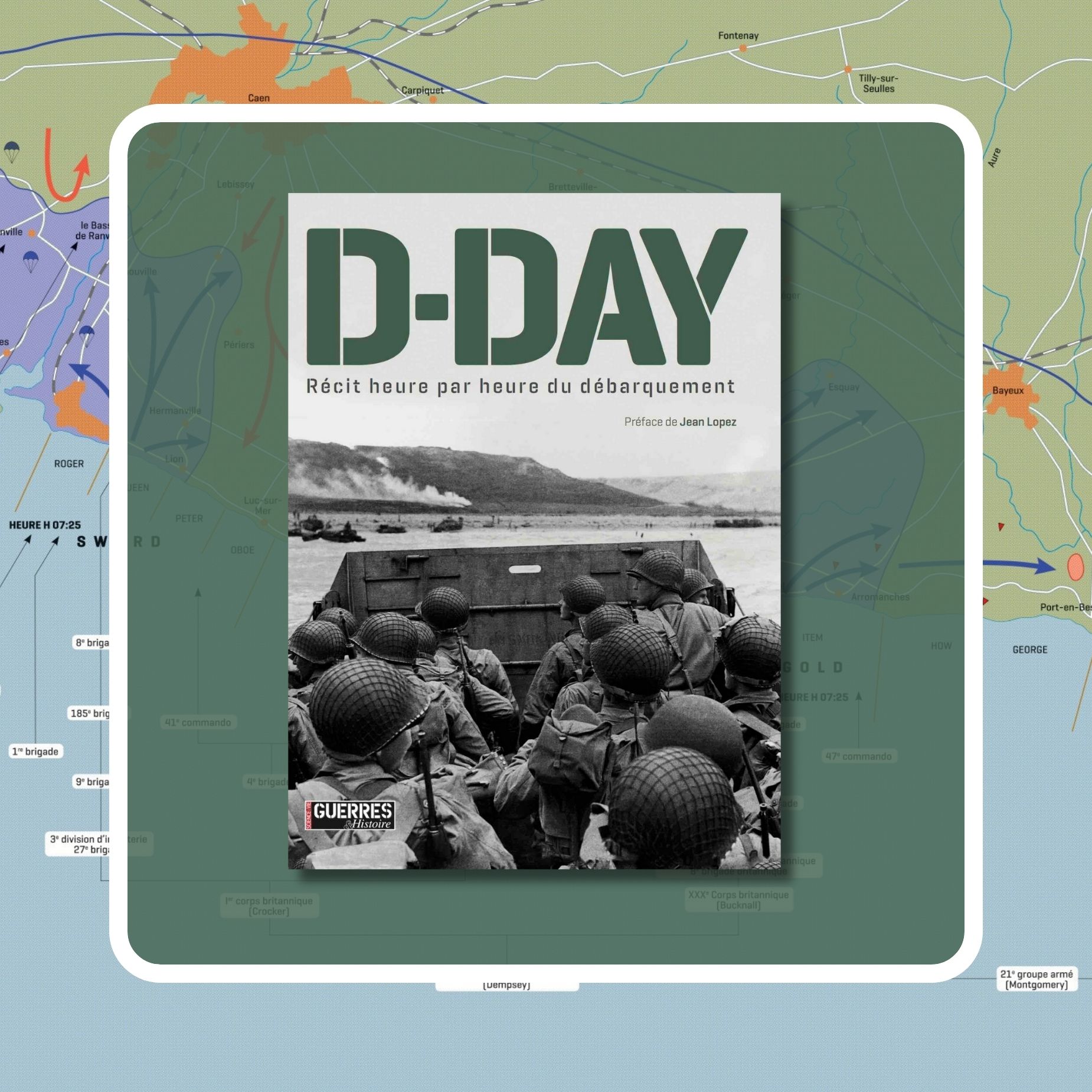
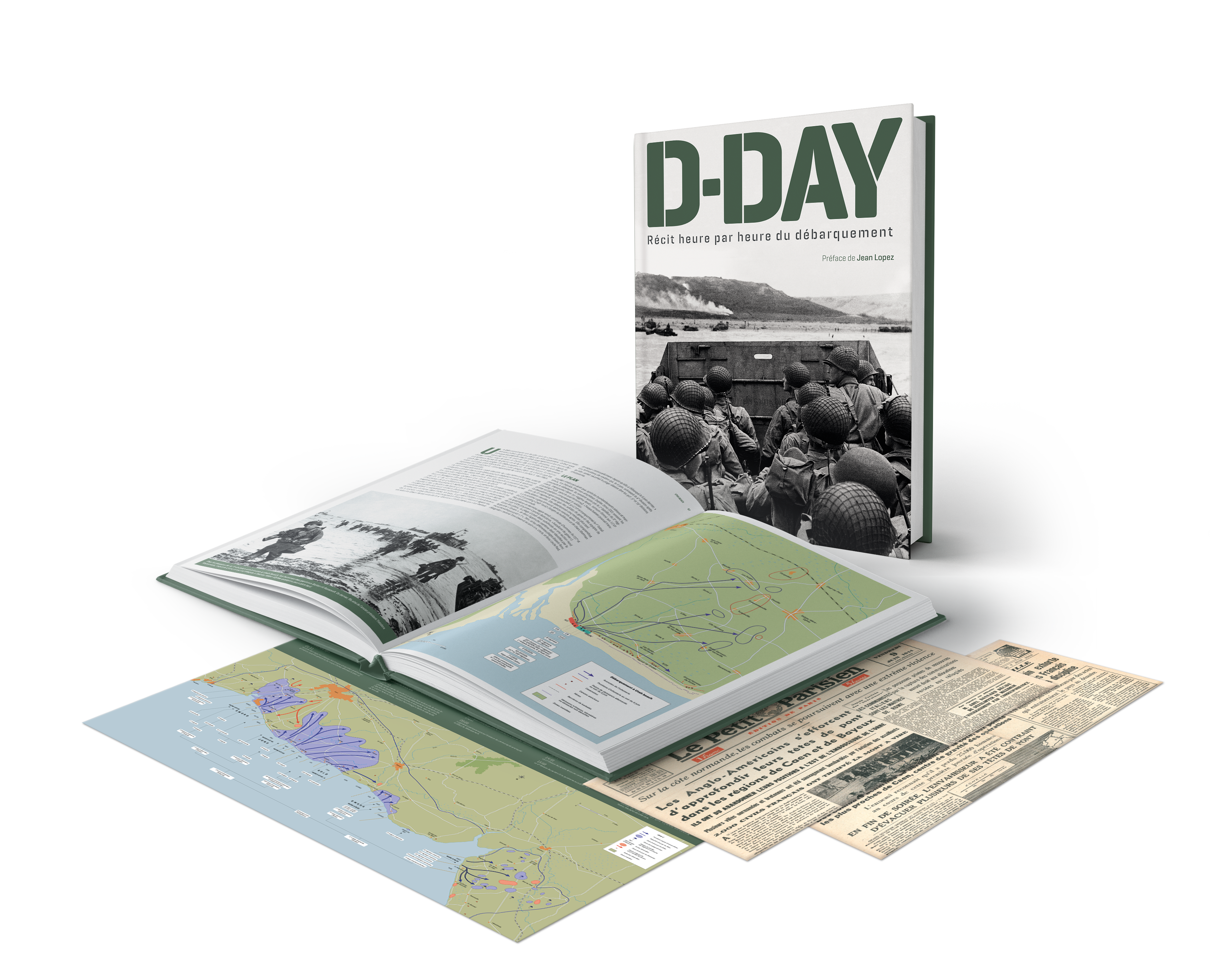
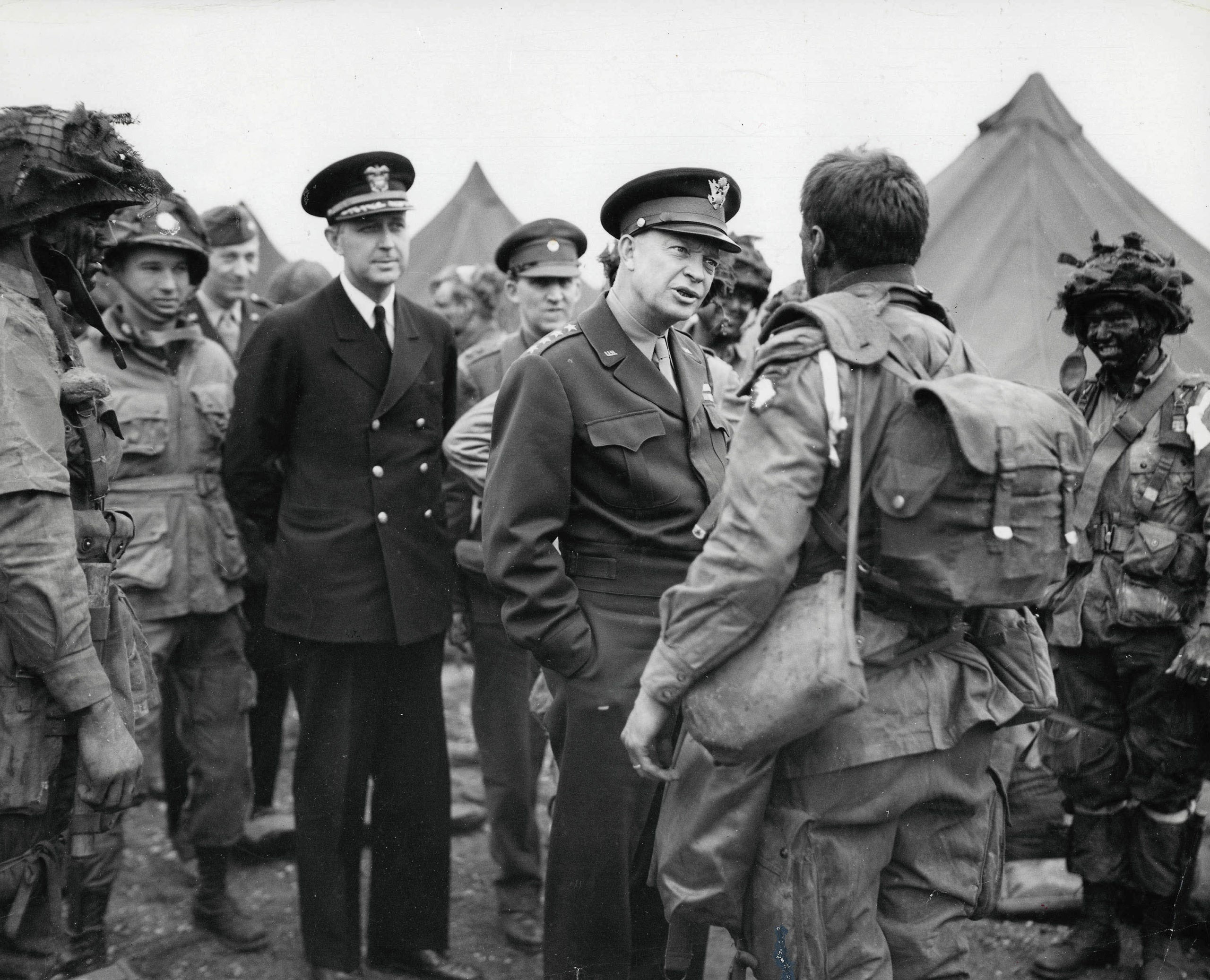
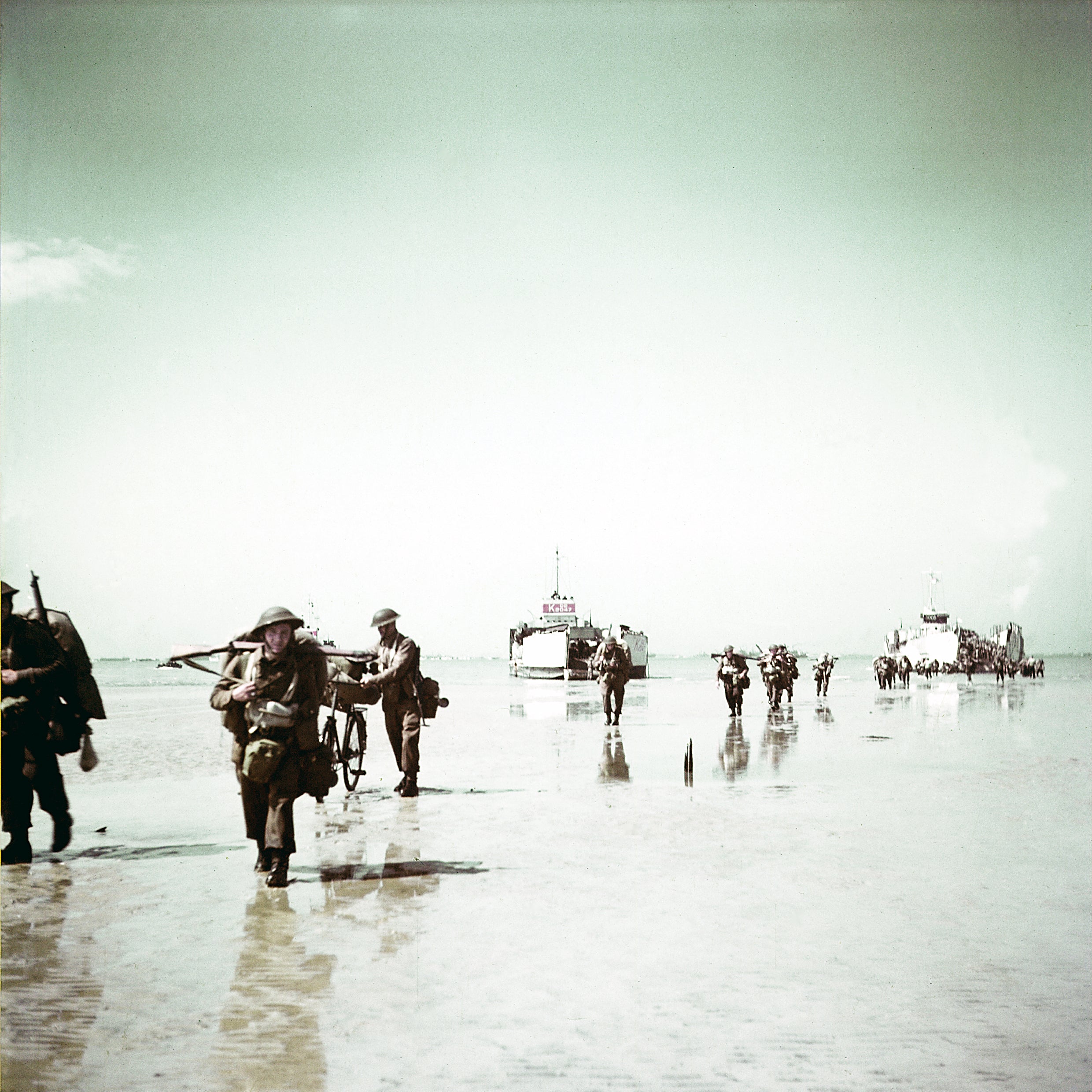
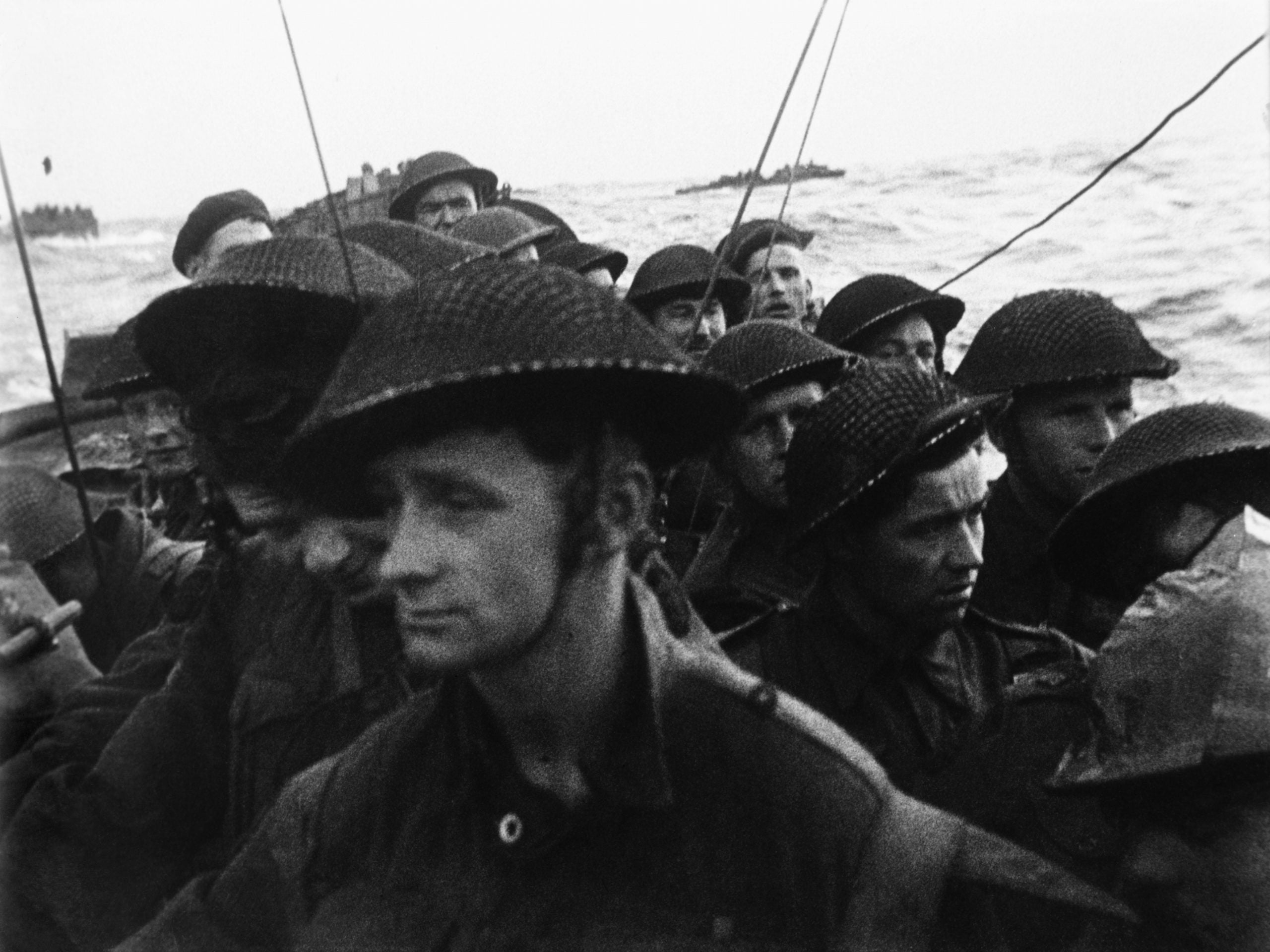
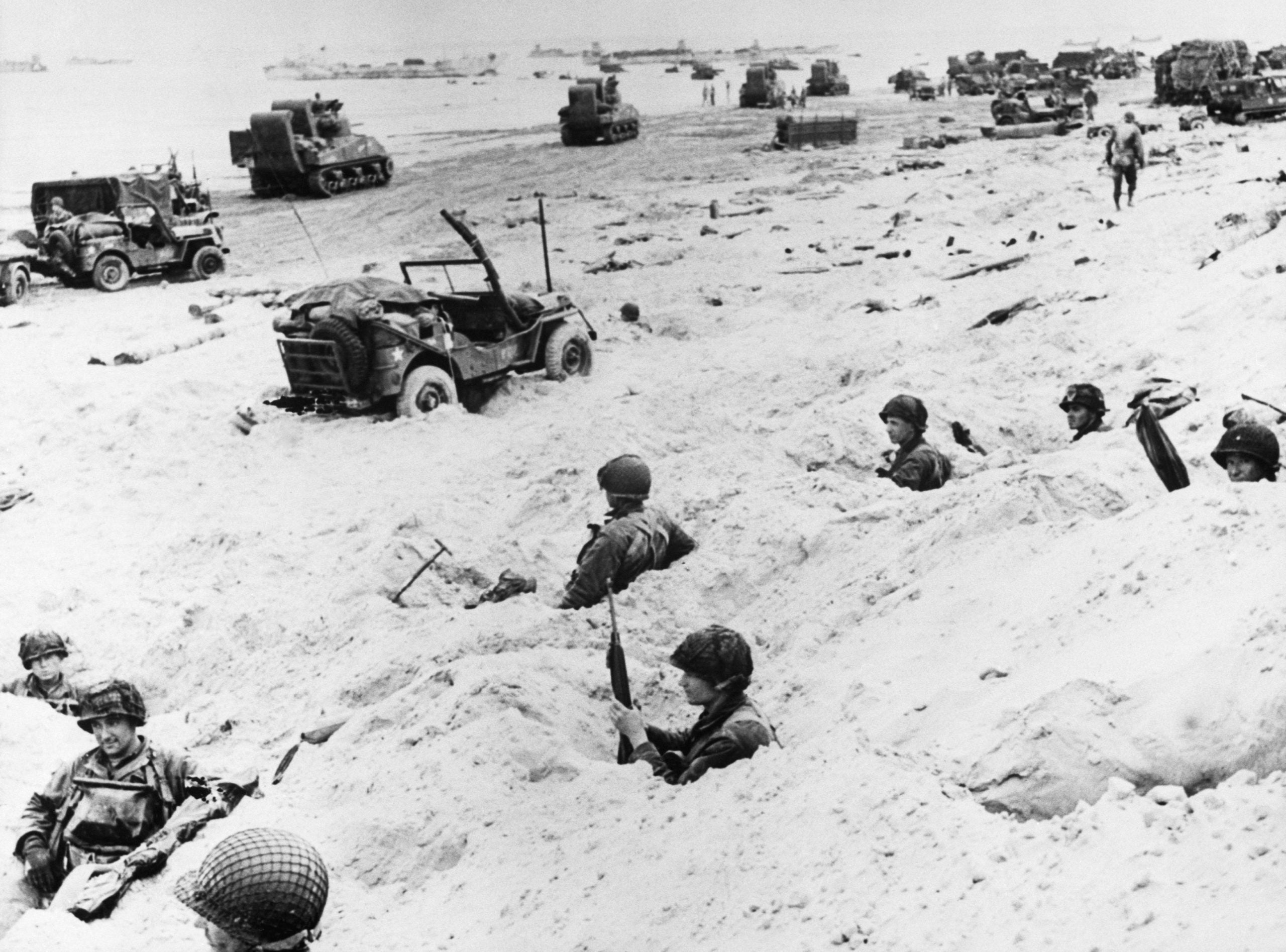
D-DAY, Hour by hour account of the landing
Description
.On June 6, 1944, the Allied landings took place. This book is the hour-by-hour account of the longest day in history. The training of the men before D-Day, the equipment used, the troops engaged, the men, the munitions, the artificial platforms that will be transported by sea, all this is largely restored by our text, rich and documented, and by unpublished archive photos. Then comes the unfolding of operations Overlord and Neptune, beach by beach (Juno, Sword, Gold, Omaha, Utah).
EXTRACT
00:16 British jump on Pegasus Bridge
On the night of June 5-6, General Eisenhower launched Operation Overlord! Parachute and airborne commandos opened the ball at midnight. Among them, the British were tasked with securing the Orne estuary, north of Caen, on the eastern flank of the Landing . They had to take two bridges, one over the Caen Canal at Bénouville, the other over the Orne at Ranville. Once in Allied hands, these bridges would serve as a passageway for troops arriving at dawn. The operation, named "Deadstick", was entrusted to soldiers from the British 6th Airborne Division. An airborne division of 5,250 men under the command of General Gale. The assault had been meticulously prepared. In fact, dress rehearsals had taken place in March and April on replicas of the bridges in England...
It all started with a diversionary operation. On Monday, June 5, at midnight, three paratroopers jumped out of a plane over the Cotentin Peninsula. In a field near Saint-Lô, they set up amplifiers broadcasting recordings of detonations, mortar fire, swearing, etc. The aim was to attract the attention of the German sentries deployed in the region. A few minutes later, the men of the 6th Airborne went into action. Among them, their hands and faces camouflaged, were the 181 paratroopers of Major John Howard's D Company, who climbed aboard six Horsa gliders, towed by Halifax bombers. Finally, the weather was favorable but the light was low: clouds obscured the full moon. However, a sentence addressed to the Germans could still be made out: "The Channel stopped you, it won't stop us."
Informations
About the artist

